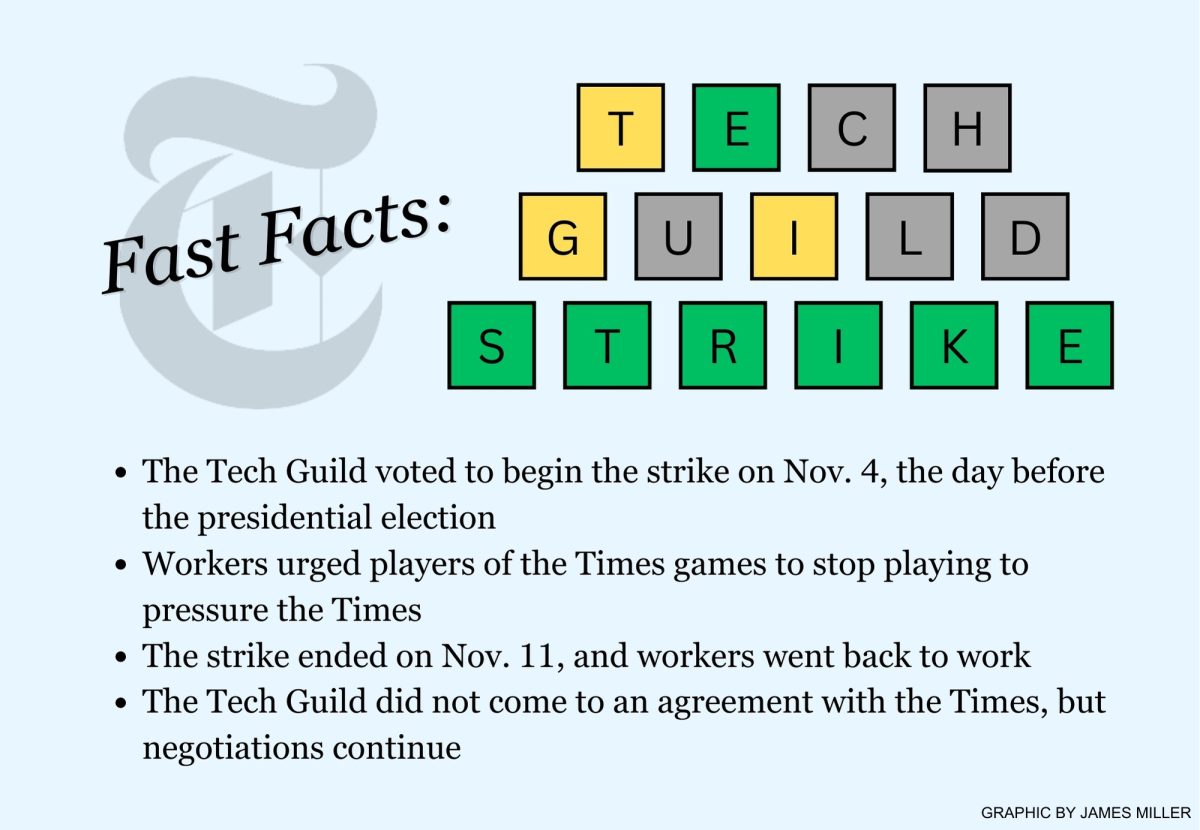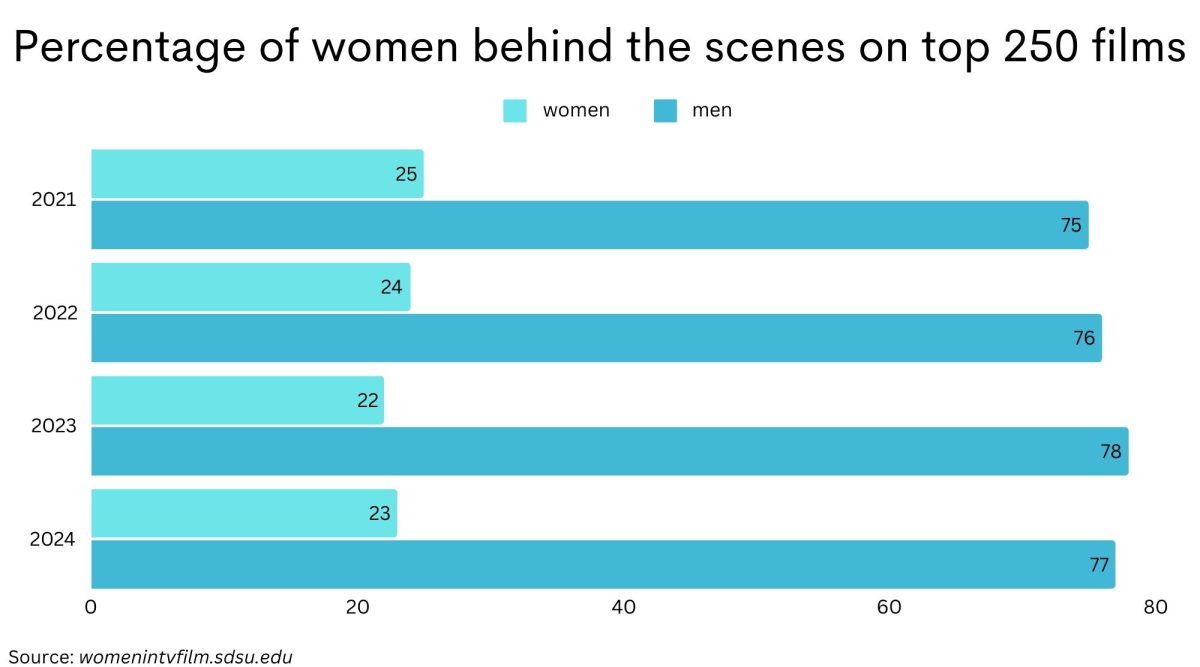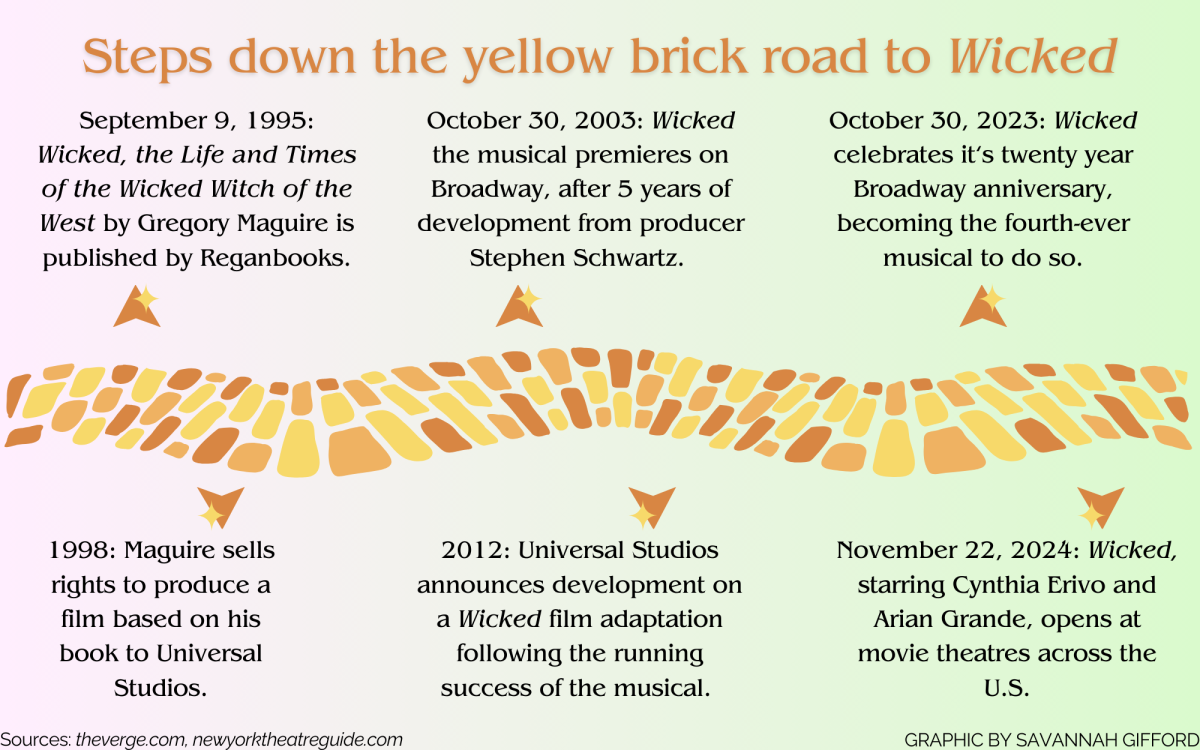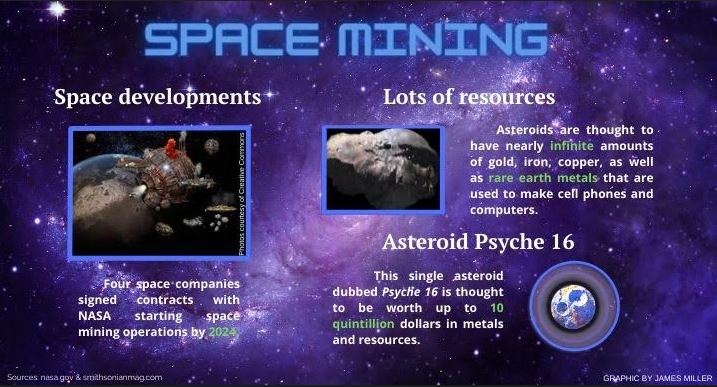Written by James Miller
Outer space is an infinite void filled with countless resources and uncertain life. Within the Earth’s own galaxy, the Milky Way, quintillions of dollars are thought to be sitting in the form of precious metals on the colossal planets and the seemingly endless row of asteroids.
Many scholars and scientists have asserted that the vast amounts of resources in these asteroids could have the potential to revolutionize the world, explode progress and innovation, or even end global poverty. However, these scientists assume that good actors get their hands on these precious metals. Currently, private companies are scrambling to harvest the space riches, determining the entire future of humanity.
“The [asteroid] belt alone is home to around $700 quintillion — that’s $100 billion for every one of the seven billion people on Earth,” according to a Business Insider article that cites NASA data.
With so much money, virtually every problem on Earth could be solved.
“If resources could possibly be brought in from space, it would bring an end to inflation all together,” said Rajesh Gowan, a writer for the Institute for Social Change. “All that we will be paying for is the means of production. This could eliminate poverty worldwide, as there will be an abundance of water for growing food and an abundance of metals and other materials for housing.”
This bright future may be closer than originally thought. Many companies have already set dates for the first mining operations. Space mining may be something Earth can reap the benefits of in the near future.
“SpaceX and NASA will launch an uncrewed spacecraft from Cape Canaveral in Florida in 2022, with the spacecraft arriving at the asteroid in 2026,” according to a BBC article.
With so many potential benefits on the horizon, it might seem almost impossible to reject a future of space mining. However, there have been objections made by politicians, professors, and activists. For one, many say the current technology is not sufficient to adapt to the unknown circumstances in space or even initiate space exploration in the first place.
“The fact we know so little is a sign that we should not try to make space some kind of commodity,” said Aviv Stabinsky ‘23. “We just don’t know enough.”
Furthermore, many have brought up ethical concerns to already-rich companies indulging in taking unimaginable amounts of wealth. Many believe that quintillions of dollars is too much money and power in the hands of one company, let alone a single person.
“[Space industrialists will be] allowed to transcend even the resource limits of the earth and access cosmic resources beyond the reach of the entirety of mankind –– they will amass godlike power,” according to a YouTube video titled Who Benefits From The Privatization Of Space?. “The repercussions of allowing all that wealth to flow into the bank accounts of a handful of ultra wealthy and powerful people would have disastrous effects; instead of buying yachts, football teams and private islands, space industrialists could buy entire nations.”
Others have also pointed to the increasingly prevalent problems like global poverty or workers’ conditions on Earth that have been disregarded in pursuit of wealth.
“When it comes to space mining, the first thing that pops into my mind is ‘frivolous,’” said Kayla Maxedon, CP and honors Biology teacher. “There’s so many things that we could be investing in here. We could be using money to do good things here rather than [just trying] to make money.”
Although there are countless potential benefits from space mining and exploration, it is ultimately up to those who actually partake in it to determine whether or not Earth can reap the benefits.
“From a perspective of science, we are not doing this for the sake of discovery,” said Maxedon. “It’s being done for the sake of making money.”


























